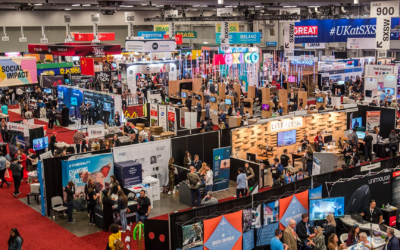The Type of US Business Visas is summary of the various business visas offered by the United States government for non-citizens. It is important to note that this information is for general reference only and should not be considered as legal advice. If you require professional guidance, we recommend consulting with an immigration attorney.
The business visas offered by the United States government for non-citizens are:
B1 VISA
B-1 is a type of nonimmigrant visa issued by the U.S. government to individuals who wish to enter the United States temporarily for business purposes.
B-1 visa holders are typically authorized to stay in the country for a period of up to six months and can engage in activities such as consulting with business associates, attending business conventions or conferences, and negotiating contracts.
Also B-1 visa holders are not authorized to engage in employment or perform any services in the United States. They are also not allowed to study in the US.
It is crucial to keep in mind that B-1 visa holders must maintain a residence outside the US and must have a valid reason to return to their home country after their visit.
E1 VISA
E-1 is a type of nonimmigrant visa issued by the U.S. government to individuals who are citizens of countries with which the United States maintains a treaty of commerce and navigation.
The E-1 visa is also known as the Treaty Trader visa. It is designed for individuals who are engaged in substantial trade, including trade in goods, services, and technology, in qualifying trade between the United States and the treaty country.
To qualify for an E-1 visa, the trade must be substantial in terms of volume, frequency, and continuity and the principal trade must be between the United States and the treaty country.
The E-1 visa holder must also have the same nationality as the company that is engaged in the trade. The E-1 visa holder can be the owner, executive, manager, or an employee with essential skills for the company.
E-1 visa holders can stay in the United States for an initial period of up to two years, and can request an extension of stay for an indefinite period, as long as the E-1 visa holder continues to meet the E-1 treaty trader requirements.
E-1 visa holder can bring their spouse and unmarried children under 21 years old to the US on E-1 dependent visa.
Note that E-1 visa is intended for individuals who are engaged in trade and not for permanent residence or employment in the United States.
E2 VISA
The E-2 visa is also known as the Treaty Investor visa. It is designed for individuals who are making a significant investment in a bona fide enterprise in the United States.
To qualify for an E-2 visa, the investment must be substantial in relation to the total cost of the enterprise, and the investor must have the ability to develop and direct the enterprise.
The E-2 visa holder must also have the same nationality as the company in which they are investing. The E-2 visa holder can be the owner, executive, manager, or an employee with essential skills for the company.
E-2 visa holders can stay in the United States for an initial period of up to five years, and can request an extension of stay for an indefinite period, as long as the E-2 visa holder continues to meet the E-2 treaty investor requirements.
E-2 visa holder can bring their spouse and unmarried children under 21 years old to the US on E-2 dependent visa.
It’s important to note that the E-2 visa is intended for individuals who are making a significant investment and not for permanent residence or employment in the United States.
EB5 Investment Program
The EB-5 Immigrant Investor Program is administered by the U.S. Citizenship and Immigration Services (USCIS) and allows investors (and their family members) to apply for a Green Card if they make a certain investment in a commercial enterprise in the United States and plan to create or preserve at least 10 full-time jobs for qualified U.S. workers.
The EB-5 program was created by Congress in 1990 to stimulate the U.S. economy through job creation and capital investment by foreign investors.
There is also a Regional Center Program that allows investors to qualify for EB-5 classification by investing through regional centers that promote economic growth.
The EB-5 Reform and Integrity Act signed in 2022 changed the program requirements and set an expiration date of Sept. 30, 2027 for the Regional Center Program.
L1 VISA
L-1 is a type of nonimmigrant visa issued by the U.S. government to individuals who are being transferred within a multinational company to work in an executive, managerial, or specialized knowledge capacity.
The L-1 visa is intended for employees of international companies who are being transferred from a foreign branch, parent, affiliate, or subsidiary of the company to a related company in the United States.
To qualify for an L-1 visa, the employee must have been employed with the company abroad for at least one continuous year within the three years preceding the application and must be coming to the United States to work in an executive, managerial, or specialized knowledge capacity.
L-1A visa is for executives or managers and L-1B visa is for employees with specialized knowledge. The employee must also have the same nationality as the company.
L-1A visa holders can stay in the United States for an initial period of up to three years, and can request an extension of stay for an additional two years, while L-1B visa holders can stay for an initial period of up to five years and can request an extension of stay for an additional two years.
L-1 visa holder can bring their spouse and unmarried children under 21 years old to the US on L-2 dependent visa.
An important information is that L-1 visa is intended for employees of international companies and not for permanent residence or employment
H-1B VISA
H-1B is a type of nonimmigrant visa issued by the U.S. government to individuals who are coming to the United States temporarily to perform services in a specialty occupation.
A specialty occupation is one that requires theoretical and practical application of a body of highly specialized knowledge and requires the attainment of a bachelor’s degree or higher in a specific field as a minimum for entry into the occupation.
To qualify for an H-1B visa, the individual must have a job offer from a U.S. employer and the job must meet the criteria for a specialty occupation. The individual must also have the appropriate educational or work experience to meet the requirements of the specialty occupation.
H-1B visa holders can stay in the United States for an initial period of up to three years, and can request an extension of stay for an additional three years for a maximum stay of 6 years. Some people may be eligible for an extension beyond 6 years under certain conditions.
H-1B visa holder can bring their spouse and unmarried children under 21 years old to the US on H-4 dependent visa.
Also keep in mind that H-1B visa is intended for highly skilled individuals in specialty occupations and is subject to an annual cap set by Congress. The demand for H-1B visa exceeds the annual cap, so the selection is made through a lottery system.
O-1 VISA
O-1 is a type of nonimmigrant visa issued by the U.S. government to individuals who possess extraordinary ability in the sciences, arts, education, business, or athletics, or who have a demonstrated record of extraordinary achievement in the motion picture or television industry.
To qualify for an O-1 visa, the individual must have a job offer from a U.S. employer and must be able to demonstrate that they possess a level of expertise and achievement significantly above that ordinarily encountered in the field. This can be demonstrated through a combination of national or international acclaim, awards, or other recognition for achievements in the field.
O-1 visa holders can stay in the United States for an initial period of up to three years, and can request an extension of stay in one-year increments, as long as the O-1 visa holder continues to meet the O-1 extraordinary ability requirements.
O-1 visa holder can bring their spouse and unmarried children under 21 years old to the US on O-3 dependent visa.
Lastly, O-1 visa is intended for individuals with extraordinary abilities and achievements in specific fields and is not for permanent residence or employment.
TN VISA
TN (Trade NAFTA) is a type of nonimmigrant visa issued by the U.S. government to citizens of Canada and Mexico who are coming to the United States to engage in professional business activities under the North American Free Trade Agreement (NAFTA).
To qualify for a TN visa, the individual must have a job offer from a U.S. employer and the job must be on the list of professions eligible for TN status under NAFTA. The individual must also have the appropriate educational or professional qualifications for the job.
TN visa holders can stay in the United States for an initial period of up to three years, and can request an extension of stay in increments of up to three years, as long as the TN visa holder continues to meet the TN professional qualifications and the job offer is still valid.
TN visa holders can bring their spouse and unmarried children under 21 years old to the US on TD dependent visa.
It’s important to note that TN visa is intended for citizens of Canada and Mexico who are coming to the United States to engage in professional business activities under NAFTA and is not for permanent residence or employment.
For more in-depth information about business visas in the United States, we recommend visiting the official website of the US Citizenship and Immigration Services.
If you have any additional question, please do not hesitate to contact us by clicking here. We’ll do our best to reply with your questions as asap.



